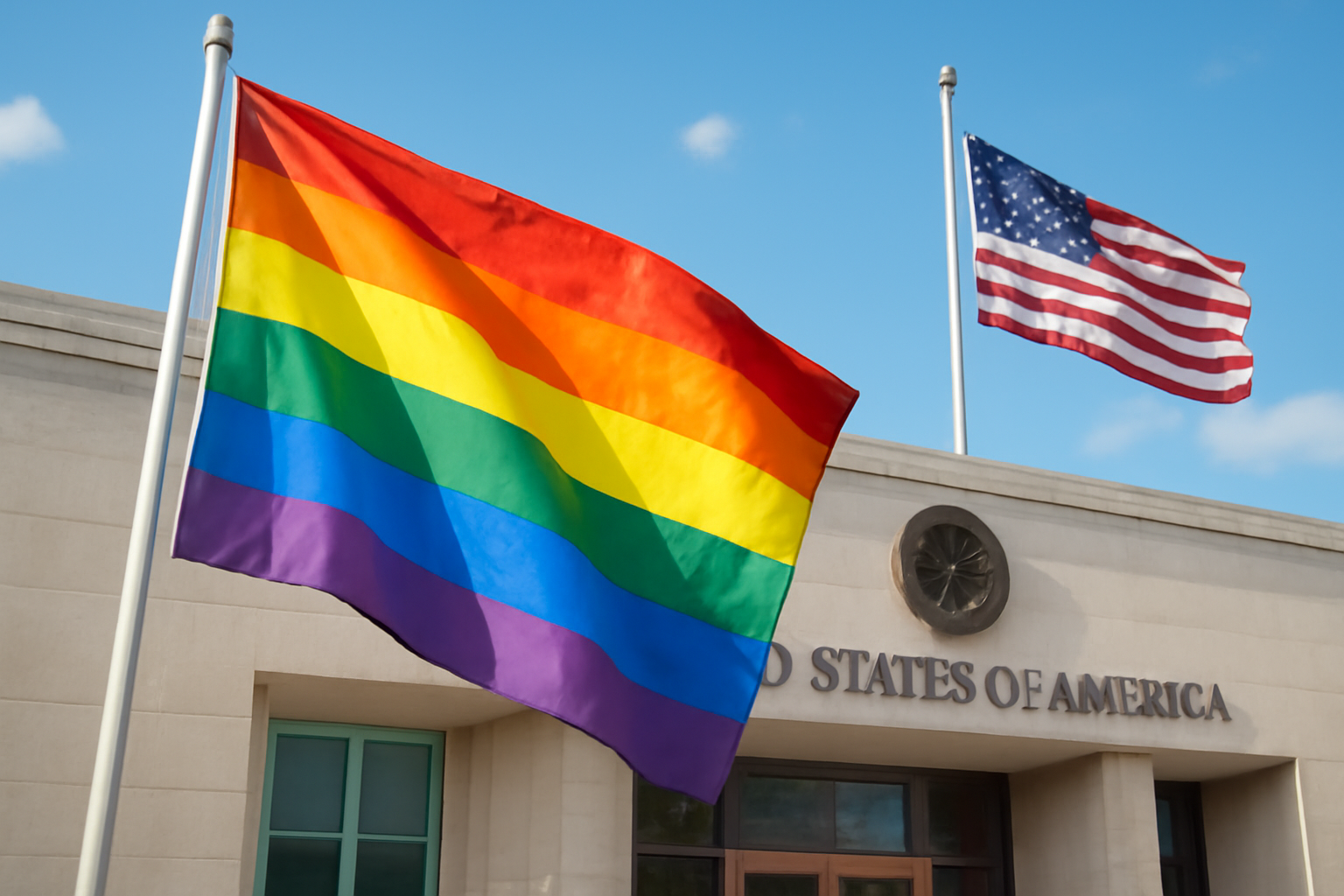
The decision to disallow the display of Pride flags at U.S. embassies has sparked significant debate and controversy both domestically and internationally. This policy, announced during a period of heightened social awareness and activism, has raised questions regarding the nature of representation, inclusion, and diplomatic freedom.
Prior to the implementation of this policy, U.S. embassies around the world had the discretion to fly the Pride flag during the month of June, which is recognized globally as Pride Month. This was seen as a gesture of solidarity with the LGBTQ+ community worldwide, acknowledging their struggles and celebrating their contributions to society.
History of Pride Flags at Embassies
The tradition of flying the Pride flag at U.S. embassies began during the Obama administration. It was part of a broader initiative to promote LGBTQ+ rights and visibility internationally. This practice was warmly received by many, as it symbolized the United States' commitment to supporting human rights and equality for all people, regardless of their sexual orientation or gender identity.
Embassies in countries with progressive LGBTQ+ policies proudly displayed the flag, while in more conservative regions, the gesture served as a beacon of hope and support for those fighting for their rights. This was particularly relevant in areas where LGBTQ+ individuals face legal discrimination or persecution.
Policy Change and Reactions
However, the recent policy change, which prohibits the display of the Pride flag on the same pole as the American flag, has been met with a mixture of reactions. Proponents of the policy argue that embassies should solely represent national interests and symbols, maintaining a uniform and consistent representation of the United States.
Critics, on the other hand, assert that this move contradicts the values of diversity and inclusion that the United States aims to promote. They argue that the Pride flag is not just a symbol of LGBTQ+ rights, but a representation of the broader fight for equality and freedom, core values that align with American democratic principles.
The Impact on Diplomacy
Diplomatically, the decision has had varied impacts. In countries where LGBTQ+ rights are recognized and celebrated, the absence of the Pride flag at U.S. embassies has been noticed and criticized. It has led to discussions on whether this policy signifies a shift in U.S. foreign policy priorities regarding human rights advocacy.
In contrast, in regions where LGBTQ+ rights are not widely accepted, the absence may avoid potential diplomatic conflicts. However, it also raises questions about whether the U.S. is retreating from its position as a global leader in human rights advocacy.
Voices from the Community
The response from the LGBTQ+ community has been overwhelmingly one of disappointment and concern. Many see the removal of the Pride flag as a step backward in the progress made over recent years. Advocacy groups have called for a reconsideration of the policy, highlighting the importance of symbols in driving social change and raising awareness.
Community leaders emphasize that visibility is a crucial component of the fight for equality. The Pride flag, they argue, is not merely a colorful banner but a statement of resilience, pride, and a demand for respect and dignity.
A Call for Dialogue
As the debate continues, there have been calls for open dialogue between government officials, diplomats, and LGBTQ+ advocacy groups. The goal is to find a balance between diplomatic protocol and the moral imperative to support marginalized communities globally.
Ultimately, the discussion surrounding the policy on Pride flags at U.S. embassies touches on fundamental questions about identity, representation, and the role of diplomacy in promoting human rights. It is a reminder that symbols matter, not just in their physical presence, but in what they represent and the change they can inspire.
The ongoing conversation signals the need for continued advocacy and awareness, ensuring that the rights and voices of the LGBTQ+ community remain a priority in both domestic and international arenas.
Related Posts
Triumphant Trans Woman Wins Legal Battle and Inspires Others to Stand Up for Their Rights
Breaking new ground: a landmark victory in transgender rights After battling in courtrooms and enduring endless challenges, Diana Portillo, a transgender woman, has secured a monumental victory in her decade-long fight against workplace discrimination. The result? Nearly $1 million awarded in a historic settlement. But this isn't just a win on paper—it represents a powerful precedent in combati [...]
Pride Month in Latin America: Protests and Demands for Equality
**Celebrating Pride and advocating LGBTQ+ rights in Latin America** Pride Month in Latin America was a lively mix where celebration met activism. Communities united, not just throwing a party but making a stand—demanding equality and pushing governments toward better protection and rights recognition. Throughout Latin America, pride events erupted in marches and cultural displays, each with a c [...]
Transgender Erasure Actions Implemented by National Park Service
```html Trump administration's impact on national park service and transgender recognition The Trump administration made notable moves in undermining transgender representation, which included directing agencies like National Park Service not include "T" and "Q" when they refered “LGBTQ” in any official communication. This move seems part a broader plan by this administration aimed at reducin [...]